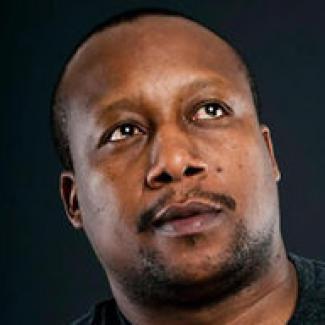Moses Matanda is a Zimbabwean filmaker based in Canada. He is known for making the the film Chinhoyi Seven
Moses Matanda
Born Moses Matanda
February 11, 1970
Education Seneca College Toronto Canada
Occupation
- Actor/Director.
Moses Matanda went to Samaringa Primary School in Honde Valley and did his High School at Saint Augustine’s in Penhalonga and Dzivaresekwa High 2.
He moved to USA, Dallas Texas, in 2000 where he studied acting at KD Studio.
He went to Toronto Media and Film College in 2007 and graduated with a course in Film Arts Production.
In 2010 he studied acting on Camera and voice at Seneca @York University, Toronto Canada.
In 2014 he created the film Chinhoyi 7 movie to honour the seven fighters and exhibit the historical importance of the battle. On the film he said:
“The film also seeks to honour Zimbabwean war heroes who are still depicted as terrorists by white media houses. I am willing to show people what the war veterans went through. Freedom was never free; it was paid for with what can never be replaced.
“This fact alone should humble us all. Let’s honour and respect our men and women who fought for the country. A younger generation of Zimbabweans born after independence in 1980 still has to be taught a lot about our war and independence.”[1]
Moses Matanda is a Zimbabwean filmaker based in Canada. He is known for making the the film Chinhoyi Seven
Moses Matanda
Born Moses Matanda
February 11, 1970
Education Seneca College Toronto Canada
Occupation
- Actor/Director.
Moses Matanda went to Samaringa Primary School in Honde Valley and did his High School at Saint Augustine’s in Penhalonga and Dzivaresekwa High 2.
He moved to USA, Dallas Texas, in 2000 where he studied acting at KD Studio.
He went to Toronto Media and Film College in 2007 and graduated with a course in Film Arts Production.
In 2010 he studied acting on Camera and voice at Seneca @York University, Toronto Canada.
In 2014 he created the film Chinhoyi 7 movie to honour the seven fighters and exhibit the historical importance of the battle. On the film he said:
“The film also seeks to honour Zimbabwean war heroes who are still depicted as terrorists by white media houses. I am willing to show people what the war veterans went through. Freedom was never free; it was paid for with what can never be replaced.
“This fact alone should humble us all. Let’s honour and respect our men and women who fought for the country. A younger generation of Zimbabweans born after independence in 1980 still has to be taught a lot about our war and independence.”[1]


